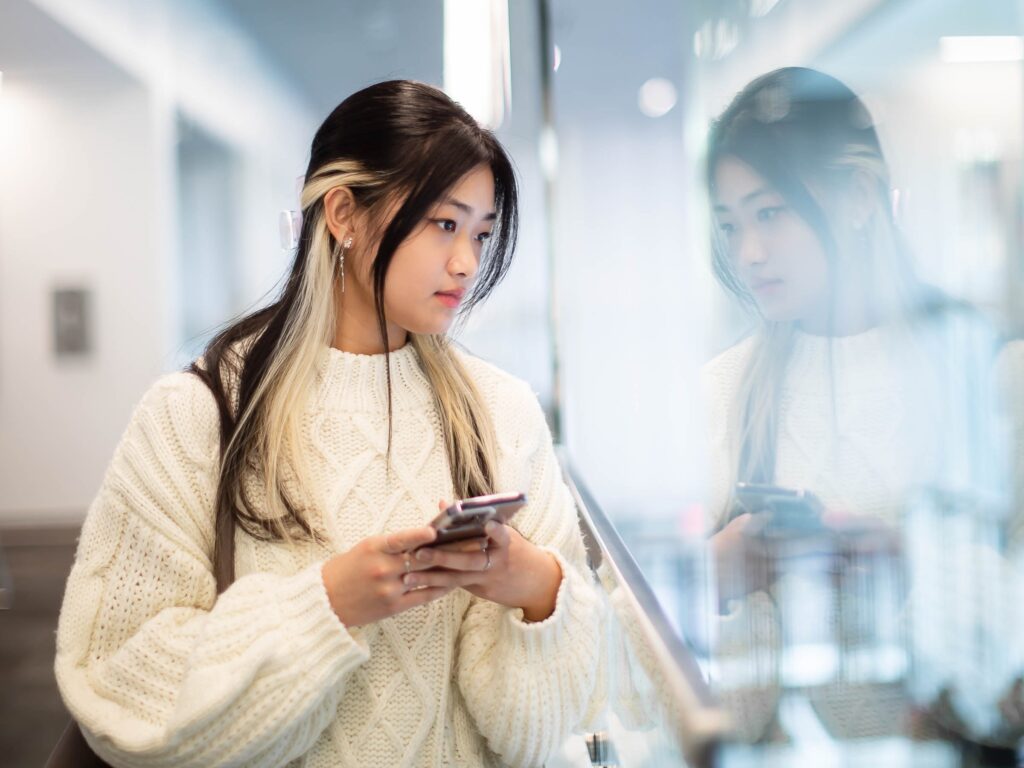Jobs
Working in Singapore is better than Canada

Canada is known to be one of the easiest countries worldwide for international students to get a work visa — the approval rate is 25%.
In 2023 alone, Canada welcomed 243, 294 new PGWP holders in Canada, a rise from 132,000 in 2022.
Michelle was one of the few who successfully secured a PGWP, but she has given it up and is now working in Singapore.
Born and raised in Indonesia, Michelle was 17 and fresh out of high school when she moved to Vancouver, Canada to pursue a Diploma in Marketing Management at Langara College.
“When I first moved to Vancouver, I had no one. It was also during the COVID-19 pandemic so my parents could not help me with my move, I had to do it all on my own,” she shares.
Despite the isolation, Michelle gradually found her footing, made lifelong friends, and decided to stay in Canada after graduation.
That’s when she applied for the PGWP and got it.
But, after months of unsuccessful job hunting, she felt overwhelmed and returned to Indonesia to visit her family.
“Then, it was too much for me, so I decided to take a break and go back home to visit my family in Indonesia,” Michelle says. “While I was back home, my aunt heard that I was visiting my family and invited me to visit her in Singapore as it’s close by to take my mind off things.”
Michelle took her aunt up on the offer, flew to Singapore, and fell in love with the tiny, futuristic island nation.
So Michelle made it her goal to get a job there. She started applying for jobs and within two weeks, she scored an interview.
A day after the interview, she received an offer and just like that, she was off to start a new life in Singapore.
We spoke with Michelle to learn more about her decision to give up her PGWP and why working in Singapore is so much better for her.
Michelle returned to Indonesia after four months of job hunting as it started taking a toll on her health to the extent she visited the emergency room at a hospital in Vancouver. Source: Michelle
Despite getting your PGWP approved, what made you realise that Canada was not the place you wanted to settle in?
Canada is a unique country, and as soon as I landed in Vancouver, I felt like I would fit in well because everyone is individualistic in comparison to Indonesia.
But it came to a point where I felt like I could not cope with the lifestyle in Vancouver, and wanted to pursue my career elsewhere.
Job hunting was also one of the reasons why I felt that Canada was not the place for me. The biggest struggle was when I kept seeing the same job postings popping up several times.
There were no new jobs within the week or even a month, so I had to wait another month for newer postings to pop up. Another downside is that there were a lot of opportunities during the summer, but that was when I would travel home to Indonesia. The summer jobs are mostly seasonal jobs that last for about two to four months.
I was also looking for a job that has offices around the world, and companies in Vancouver lacked that.

Michelle is currently working as a marketing executive at a safety solutions provider company in Singapore. Source: Michelle
What led you to start working in Singapore? Why did you choose it as the country to kickstart your career?
I went back home to visit my family in Indonesia and my aunt asked me to visit her in Singapore as she lives and works there. I took her up on the offer and I solo-traveled to Singapore for a short holiday.
When got to Singapore, I noticed that the country’s convenient and it has everything I needed.
Despite the minimum wage being higher in Canada, the people in Singapore are nicer and I felt a sense of belonging.
Things are also expensive in Canada and it’s inconvenient to get to places.
Initially, I thought it was almost impossible to land a job in Singapore. I had a conversation with a friend who was also applying for jobs in Singapore, and she realised foreigners are less likely to get a job in comparison to the locals, and even the locals have impressive job experiences and degrees.
Additionally, working in Singapore would help me build my resume. If I were to move to a different country, the employers would see my resume and hopefully say, “Oh, she has managed to land a job in Singapore, one of the hardest countries to land a job as a foreigner.”
I hope to also showcase my resilience to the work pressure and ethics that Singaporeans are known for.
@michelleewong♬ original sound – overlays
You have a big following on TikTok. What made you start content creation and how has your degree helped you?
I started TikTok for fun during the COVID-19 pandemic, and I was not expecting anything or even becoming a content creator. I could not go anywhere at the time, so I would just stay at home and that’s when I discovered TikTok.
I tried posting online as it became a way of helping me interact with people when interactions were hard. It was a good way to cope, and it gave me a purpose to get up and do something with my day.
With the help of my degree, helped a lot when it came to ideating content. I understood what was needed to catch the attention of viewers and what type of viewers were following me.
Do you have any advice for students looking to study abroad and settling there after graduation?
No one knows what the future may hold. As soon as I got to Vancouver, I thought that I would land a job there after graduation but that’s not the case. Instead, I’m working in Singapore, in a job that I enjoy.
But that does not mean you should end your journey there after graduation. Just do your best and if the opportunity for you to work there arises, take it.
When I applied for the PGWP, I was not expecting to receive it, but I still tried despite thinking I would not succeed.
I once heard a quote, “Rejection means redirection”. Rejection doesn’t necessarily mean failure; it can be a redirection to something better and a setting of a path to what you desire. This applies to my unsuccessful job-hunting journey in Vancouver.
It’s a quote I stand for as I was struggling a lot, thinking if I could land a job or else I would lose the chance to settle in Vancouver. But now, I’m working in Singapore and that made me realise the rejections that I was getting were redirecting me to a new life in Singapore.









